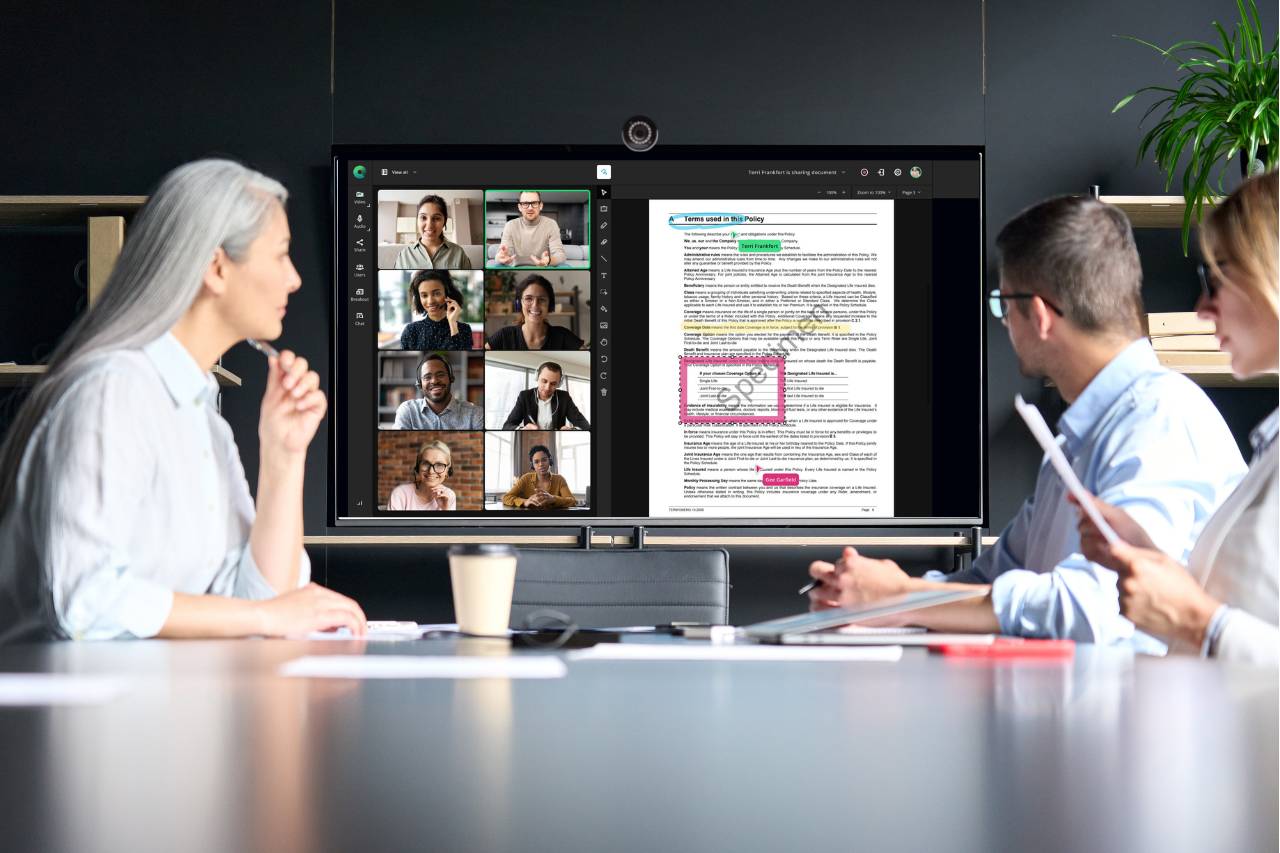Capabilities of Android TV can elevate employee experiences in a hybrid environment
Android TV offers capabilities in different areas that can enhance many workplace experiences. When you introduce a larger TV screen, interacting with digital content is more immersive. Because TV screens often have better picture quality compared with a typical computer or device screen, TVs provide a richer user experience.
Work collaboration using an Android TV, especially live synchronous video collaboration, can better replicate face-to-face communication among teams and between individuals. Android TVs and devices offer wide flexibility to accommodate individual preferences for specific locations and devices, including various-sized TVs, smartphones or tablets. With the right platform, integrating multiple apps that can be accessed via Android can provide employees with a more connected and nearly seamless work experience.

Along with work collaboration for teams, the benefits of Android TV can enhance many HR activities and experiences. By incorporating Android TV, HR teams can formulate plans that boost employee engagement and satisfaction – for both remote-first and hybrid-model teams. Company HR teams are finding innovative and fun ways to keep their staff engaged, no matter where they are. From hosting quilting bees, travel and hobby “show and tells,” to pet visits and company cook-offs, companies are organizing activities that are even more engaging when they’re happening on a larger and more immersive screen.
Organizations must create a plan for hybrid work
Hybrid work as a general workplace model supports a mix of both remote and in-office work environments. However, some hybrid work models are more structured than others. For instance, some organizations mandate that employees work in the office on specific days of the week or month. Yet, other firms give employees more autonomy to choose their own schedules. Employees in various industries enjoy the flexibility and other benefits of hybrid work. Being able to make your own schedule, having a greater work/life balance, and the ability to work from anywhere are all very appealing. Others enjoy the mix of in-office time and remote work that can cut down their commute time overall, for instance.
But challenges arise with hybrid-work models – especially surrounding communication, collaboration, and motivation when teams can’t always be in the same location. Hybrid-work models work best when organizations design and implement a plan that addresses these challenges. Delivering better experiences is a critical part of any plan to optimize the hybrid workplace.
HR role has been extended to new areas to help hybrid success
Human resource departments now have the essential task of devising hybrid work plans to create better remote and hybrid work environments. HR can help define and set best practices that address the challenges with hybrid models, and leaders often look for new strategies to help the process.
One key strategy is to find innovative ways and opportunities for both remote and in-office employees to engage and connect using immersive technology.

“The focus is on the use of technology to make the in-office experience more enjoyable and to keep our employees engaged,” according to a report from the Society for Human Resource Management.
The right immersive technology can deliver more engaging experiences for various work collaborations, brainstorming, team building, L&D, and culture-building experiences that allow employees to get to know each other when they’re not in the same location. Collaboration is a main area that needs support in a hybrid workplace, including a focus on “intentional collaboration” that builds both innovation and execution. Immersive collaborative experiences using Android TV apps can elevate collaboration for both individuals and teams.
Another area that’s critical for hybrid work success is making sure that managers are trained to facilitate both remote and hybrid teams – an area that is a challenge for many organizations. However, according to recent reports, many organizations aren’t taking the steps to train their managers to lead hybrid teams, which is leading to engagement challenges.
But HR can also use immersive technology found with Android TV apps to create more intuitive and motivating experiences to train and set best practices for working with hybrid and remote teams.
Along with training, implementing onboarding using Android TV can help create highly engaging interactions that start to build a strong hybrid company culture from the start of employee experiences with an organization, particularly with distributed teams. Meanwhile, online learning and development experiences using Android TV can be more immersive and engaging for new hires as well as established employees.
Learn more about adding Android TV to your video collaboration platform: https://www.cordoniq.com/android-tv/